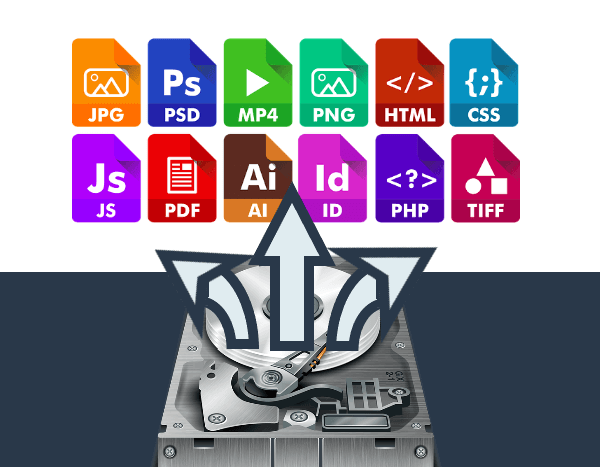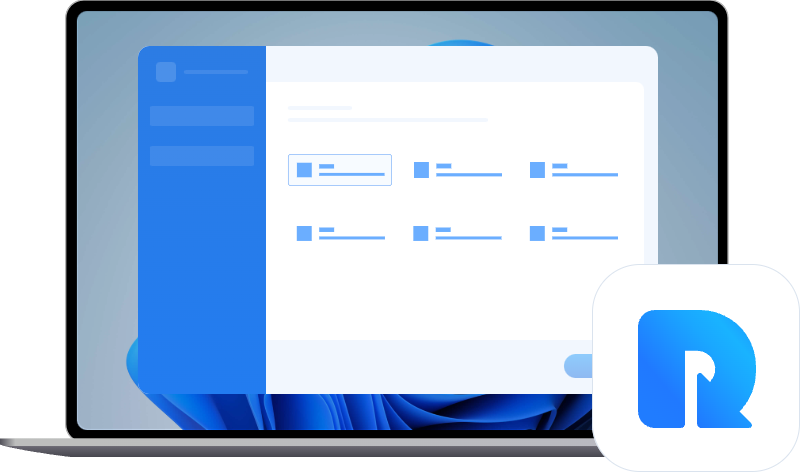Unveiling the Power of Free File Undelete Software: Your Ultimate Guide to Data Recovery Solutions
In this guide, we delve deep into the realm of free file undelete software, shedding light on its significance, the multitude of reasons for its usage, and the inherent risks of data loss. We introduce MyRecover to you, providing step-by-step instructions for recovering your precious files.
Have you ever found yourself in the gut-wrenching situation of accidentally deleting crucial files from your hard drive? Whether it's an important document for work, cherished family photos, or critical business presentations, the loss of data can be a devastating blow.
Thankfully, with the advent of free file undelete software, you can rest assured that your files are not lost forever.
User Case:
Imagine spending countless hours meticulously crafting a document only to hit the delete button inadvertently moments before the deadline. The panic sets in, the adrenaline surges and the frantic search for a solution begins.
Without free file undelete software, the prospect of recovering such files seems bleak, leaving you in a state of despair.
But why do users find themselves in dire need of free file undelete software? The reasons are as diverse as they are numerous.
From accidental deletion stemming from human error to formatting mishaps and system crashes, the possibilities for data loss are endless. Software glitches, virus attacks, and hardware failures further compound the risk, highlighting the necessity for robust data recovery solutions.
The risks associated with deleted important files extend far beyond mere inconvenience. Beyond the immediate frustration lies the potential for irreparable damage, both professionally and personally.
Financial records, academic documents, irreplaceable memories—all susceptible to the whims of fate, hanging precariously on the edge of oblivion.
A list of Free File Undelete Software
Fortunately, a plethora of free file undelete software options exists to alleviate your data recovery woes. Let's explore some recommended tools along with their backgrounds and specific steps for undeleting files from hard drives:
1. Recuva:
Background:
Developed by Piriform, Recuva stands as a beacon of hope in the realm of data recovery, renowned for its intuitive interface and unparalleled effectiveness. Recuva's robust scanning algorithms enable it to delve deep into your hard drive's recesses, uncovering lost files with remarkable accuracy.
Features:
Quick and Deep Scan Modes: Recuva offers both quick and deep scan modes, allowing users to tailor their recovery efforts to suit their needs.
Secure File Overwriting: With Recuva's secure file overwrite feature, users can permanently erase sensitive files, ensuring their privacy and security.
Steps to Undelete Files:
Launch Recuva, select the desired drive or location for scanning, peruse the list of recoverable files, and initiate the restoration process with a single click.
2. EaseUS Data Recovery Wizard:
Background:
With over a decade of experience under its belt, EaseUS has established itself as a leader in the data recovery arena, offering a suite of tools tailored to meet your every need.
EaseUS Data Recovery Wizard stands as a testament to the company's commitment to excellence, boasting an impressive array of features designed to simplify the data recovery process.
Features:
Flexible Recovery Options: EaseUS Data Recovery Wizard offers a range of recovery options, allowing users to recover files lost due to deletion, formatting, partition loss, and more.
Preview Functionality: Preview recoverable files before initiating the recovery process, ensuring the integrity and relevance of your recovered data.
Steps to Undelete Files:
Fire up the Data Recovery Wizard, specify the target drive for scanning, sift through the plethora of recoverable files, and embark on your journey to file retrieval nirvana.
3. PhotoRec:
Background:
Part of the esteemed TestDisk suite, PhotoRec embodies the ethos of open-source excellence, providing users with a robust data recovery solution free of charge. While its command-line interface may seem daunting to newcomers, photorec's unparalleled file recovery capabilities more than make up for its lack of user-friendliness.
Features:
Wide Range of Supported File Formats: PhotoRec boasts support for over 480 file formats, ensuring that no file is beyond recovery.
Cross-Platform Compatibility: PhotoRec is compatible with a variety of operating systems, including Windows, macOS, and Linux, making it a versatile tool for users across different platforms.
Steps to Undelete Files:
Initiate PhotoRec, select the afflicted drive or partition, configure your file type preferences, and watch as your lost files emerge from the digital ether.
4. MyRecover
While the aforementioned free file undelete software options hold their own in the data recovery arena, one tool stands head and shoulders above the rest—MyRecover. With its unmatched features and seamless operation, MyRecover sets the gold standard for file recovery, ensuring that no lost file remains beyond reach.
Features:
Intuitive User Interface: Navigate with ease and confidence, courtesy of MyRecover's user-friendly interface.
Advanced Scanning Algorithms: Harness the power of cutting-edge algorithms to scan, locate, and recover your lost files with precision.
Extensive File Format Support: From documents and photos to videos and archives, MyRecover supports a wide array of file formats for comprehensive recovery.
Preview Functionality: Preview recoverable files before initiating the restoration process, ensuring the integrity and relevance of your recovered data.
Selective Recovery Options: Choose specific files or folders for recovery, streamlining the process and saving valuable time and resources.
To recover deleted files from hard drives using MyRecover, follow these simple steps:
Download and install MyRecover on your system.
Launch the software and select the target drive or partition for scanning.
Initiate the scanning process and patiently await the results.
Preview the recoverable files and select those you wish to restore.
Click the "Recover" button and witness the magic as MyRecover restores your lost files to their rightful place.
In conclusion:
Free file undelete software serves as a beacon of hope in the turbulent seas of data loss, offering a lifeline to those in need. Whether it's the result of human error, system malfunction, or malicious intent, the loss of data is a bitter pill to swallow. With the right tools and knowledge at your disposal, however, you can navigate these treacherous waters with confidence and emerge victorious on the other side.
FAQs (Frequently Asked Questions):
1. Can free file undelete software recover files from formatted drives?
Yes, most free file undelete software options, including MyRecover, boast the capability to recover files from formatted drives with a high degree of success.
2. Is it possible to recover files that were deleted a long time ago?
While the likelihood of successful file recovery diminishes over time, advanced recovery techniques employed by tools like MyRecover can still salvage files deleted long ago.
3. Are there any risks associated with using free file undelete software?
While generally safe to use, free file undelete software carries a slight risk of data corruption or overwriting existing files during the recovery process. Exercise caution and follow best practices to minimize these risks.
4. Can I recover files from a physically damaged hard drive?
In cases of physical damage, specialized data recovery services may be required to retrieve files from hard drives. However, free file undelete software may not be effective in such scenarios.
5. How long does the file recovery process typically take?
The duration of the file recovery process varies depending on factors such as drive size, the number of files to be recovered, and the efficiency of the recovery software. Generally, smaller drives and fewer files result in quicker recovery times.



